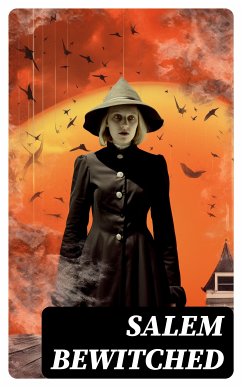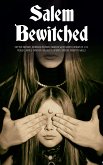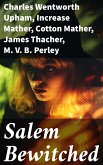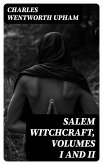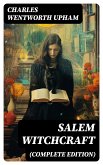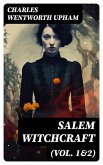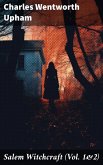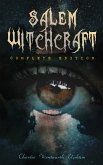Salem Bewitched presents a compelling anthology of writings that explore the infamous Salem witch trials, weaving together a tapestry of historical narratives, personal reflections, and astute analyses. Within its pages, readers will encounter a rich diversity of literary styles, ranging from firsthand accounts to critical essays, each piece contributing to a nuanced understanding of this pivotal era. The collection captures the tumultuous convergence of superstition, fear, and human frailty, punctuated by standout pieces that delve deep into the psyche of a society gripped by hysteria. As an anthology, it provides an invaluable literary context of colonial America's darker chapters, showing how past misconceptions resonate even today. The contributing authors, including noted figures such as Charles Wentworth Upham and Increase Mather, offer diverse perspectives that collectively flesh out the human and societal dynamics at play during the trials. Upham's historical investigations, alongside the Mathers' contemporaneous reflections, provide essential viewpoints that span generations and ideological divides. Aligning with the Puritan tradition and early American literary movements, their voices are complemented by the likes of James Thacher and M. V. B. Perley, whose works add layers of understanding and empathy. Together, these authors illuminate the confluence of historical, cultural, and literary influences that shape the trial narratives. This anthology is an indispensable resource for readers eager to immerse themselves in a multifaceted examination of the Salem witch trials. Its breadth of insights and variety of voices make it a unique educational tool, offering perspectives that challenge and enrich the reader's comprehension of history's complexity. As a collection, Salem Bewitched encourages a vibrant dialogue between the past and present, within the works themselves and among readers, shining a light on the human condition's ever-relevant trials and triumphs.
Dieser Download kann aus rechtlichen Gründen nur mit Rechnungsadresse in A, B, BG, CY, CZ, D, DK, EW, FIN, F, GR, H, IRL, I, LT, L, LR, M, NL, PL, P, R, S, SLO, SK ausgeliefert werden.

